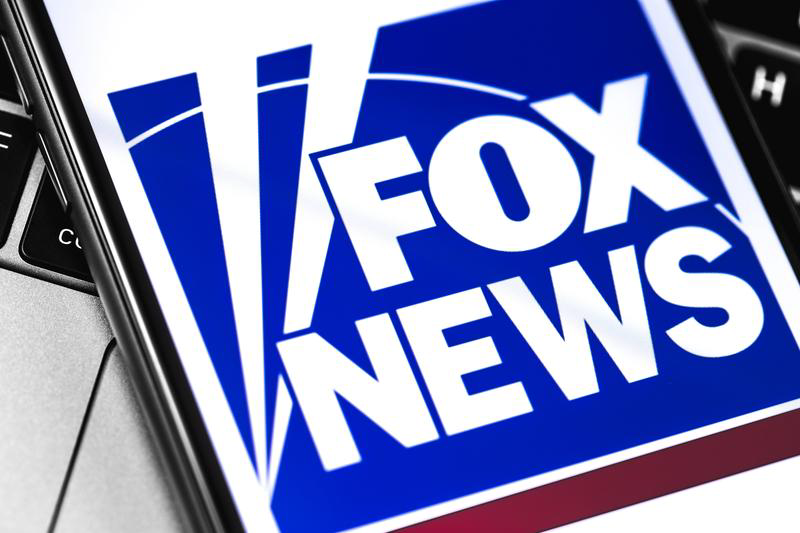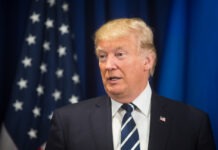President Donald Trump’s approval ratings are on a downward trajectory as he approaches the 100-day milestone of his second term, according to recent surveys indicating a poorer performance compared to other second-term presidents since WWII at the same stage of their tenures.
The latest Fox News poll indicates Trump’s approval rating has fallen to 44%, with a net approval of -11 points (44% approval minus 55% disapproval). This marks a decrease from the 49% approval rating recorded in the March Fox News poll.
A more pressing issue for the president is that his current approval is lower than during his first term at the same juncture. Trump registered a 45% approval rating at the 100-day point during his initial term, suggesting a comparative decline in his second term.
The Fox News poll further reveals that Trump is trailing behind his predecessors at analogous stages in their presidencies. Joe Biden had a 54% approval rating, Barack Obama was at 62%, and George W. Bush held 63% approval at their respective 100-day marks.
Trump reacted to the Fox News poll by criticizing the network’s polling methodology, stating the “pollster has gotten me, and MAGA, wrong for years,” according to reports.
The decline in approval appears largely driven by economic challenges, a significant concern for Trump given the economy’s strength during his first term. The Reuters/Ipsos poll indicates only 37% of Americans approve of Trump’s economic management, with the Fox News poll similarly showing 38% approval and 56% disapproval.
Trump is particularly facing disapproval on inflation, with just 33% approving and 59% disapproving of his handling of the issue, as reported by the Fox News poll. His tariff policies also show low support, with only 33% approval compared to 58% disapproval.
The Pew Research Center poll conducted in April 2025 finds Trump’s overall approval rating has fallen to 40%, a seven-point drop from February. Pew reports that several of Trump’s key policy decisions, including tariff hikes, reductions in federal departments, and frequent use of executive orders, receive more negative than positive public opinion.
Trump’s tariff policies are significantly impacting his ratings. The CNBC All-America Economic Survey records Trump’s lowest economic approval ratings yet, with only 43% of Americans endorsing his performance.
According to the CNBC survey, fewer than half of U.S. adults (45%) express confidence in Trump’s capacity to make sound economic decisions, marking a 14-point drop from the previous year.
The Reuters/Ipsos poll also reveals that many Americans are cautious about Trump’s efforts to expand his authority.
The poll finds that 57% of respondents disagree with the idea of a president withholding funding from universities they oppose, and 66% believe the president shouldn’t have control over national cultural institutions.
Trump’s approval rating has reached its lowest point since the beginning of his second term, according to the Reuters/Ipsos poll, which lists it at 42%.
There is, however, a positive note for the president regarding border security. The Fox News poll shows that 55% of respondents approve of Trump’s border security measures, marking it as his strongest issue.
Conversely, Trump faces challenges in foreign policy, with 40% approval and 54% disapproval as per the Fox News poll.
The decrease in Trump’s approval rating has been notable since January. New York Magazine’s analysis states that Trump’s net approval rating has dropped from a positive 11.6% in January to a negative 7% in April, an 18.6 percentage point decline.
Trump’s current economic approval ratings are particularly significant, considering that his 2024 election victory was heavily based on pledges to reduce inflation and rejuvenate the economy.
While Trump’s overall approval rating during his second term has averaged 45%, which is higher than his first term, it remains lower than the approval ratings of post-World War II presidents at comparable stages in their presidencies.
The economic issues affecting Trump’s approval ratings seem to center on inflation and consumer expenses. According to polling data, 47% of respondents identify the price of food and consumer goods as their primary economic concern, with housing/rent costs and the stock market also significant issues.
As Trump approaches the symbolic 100-day mark of his second term, these approval ratings pose a challenge for an administration that heavily emphasized economic competence and executive experience during its campaign.











